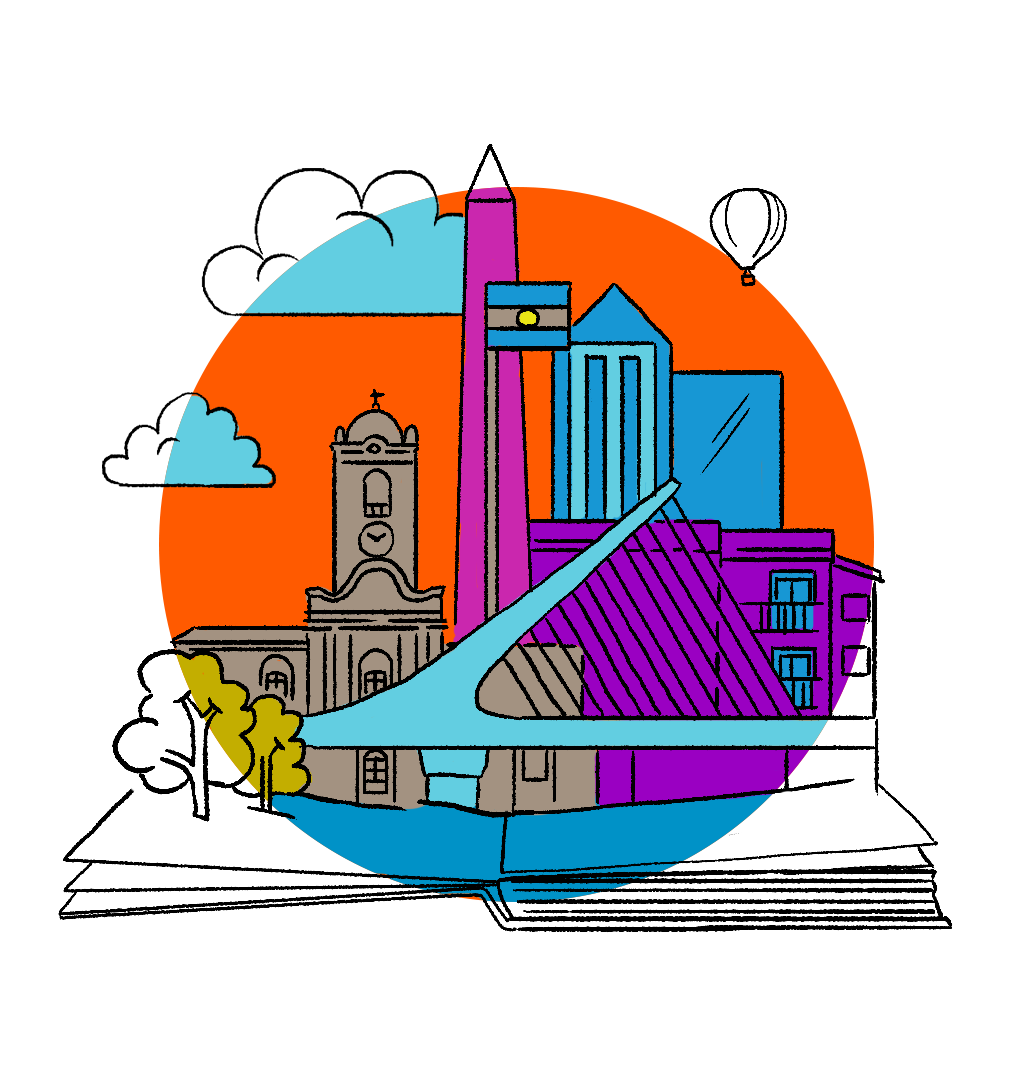Culture plays a vital role in both the economy and the life of Buenos Aires. In the pandemic, a committed Ministry of Culture has worked hard to defend it.
In Buenos Aires, as all over the world, the COVID-19 pandemic has presented the cultural sector with unprecedented challenges. A strict quarantine was imposed in our country on 18 March. The decision to isolate ourselves in our homes was made in order to safeguard ourselves, our loved ones and the whole community. Daily routines were disrupted. Cinemas, libraries, theatres, and bookstores – among many other cultural spaces – had to close their doors and temporarily suspend their activities. But these new circumstances did not impede the emergence of creative and innovative ideas designed to help us face these challenges together.
Culture is of central importance in the City of Buenos Aires, both in terms of identity and from an economic point of view. In our country, we are the district that invests the most in culture, both per capita and as a proportion of the district’s total budget. Of all public investment in culture in Argentina, including that invested by the national government and all the provinces, 25 per cent comes from the government of the City of Buenos Aires.
Almost half of the formal jobs in the cultural sector in the whole country are located in our city, with 84 per cent of these linked to two sectors: audiovisual and publishing. By turnover, the audiovisual sector is the largest, accounting for 73 per cent of the cultural sector’s total turnover, followed by the publishing industry and then by music and theatre, among others.1
The city is also rich in independent culture, with 457 independent cultural spaces, ranging from theatres and cultural centres to music clubs and milongas (tango clubs). An analysis of the income of these spaces allowed us to identify several main components: ticket sales represent 53 per cent of the income, catering services account for 22 per cent and the remaining 25 per cent of the income is generated through courses or classes and rentals for events.
This sector was one of the hardest hit by the suspension of all activities with public attendance – and the vast number of cultural producers and managers in our city urgently needed our support. In response, we developed various alternatives and public policies. We operate several programmes that seek to support artistic disciplines and cultural spaces across the cultural sector, from tango to bookstores and to independent theatre. One such programme is Impulso Cultural (Cultural Impulse), which includes BAMilonga, Proteatro, BAMusica, Prodanza, Fondo Metropolitano de las Artes (Metropolitan Arts Fund) and Mecenazgo (Patronage). Through Impulso Cultural, we seek to enhance and promote the development of projects from the independent sector by helping them with concrete resources.
In this period of extraordinary isolation, we have been able to confirm culture’s fundamental role in contributing to the wellbeing of all people – we are convinced that it is a driver for human and social development
In the context of the pandemic, we decided to increase the funding we provide to these programmes, raising many by 50 per cent and others by 35 per cent, taking the total from approximately US$132 billion to nearly US$180 billion. We also enabled cinemas, bookstores, record stores, art galleries, commercial theaters, dance clubs and bars, among other cultural spaces, to request exemption from the local lighting, sweeping and cleaning tax for the months of June and July. This measure helped to support 1,000 establishments dedicated to cultural activities.
We worked with the city’s public bank, Banco Ciudad, to create grants, tenders for funding and loans as incentives to enable our city’s artists to continue developing their professions. We maintained a constant dialogue with the different artistic collectives to develop this support package, reflecting our conviction that public administration works better when it works in collaboration with the private sector.
One of our main aims is to get more and more companies to bet on independent cultural spaces. To this end, in 2018 we passed the Cultural Participation and Patronage Law (Ley de Participación Cultural-Mecenazgo), with which we improved the funding programme that stimulates the development of artistic and cultural projects. Through this programme, taxpayers could allocate part of their gross income tax payments in the City of Buenos Aires to support cultural and artistic projects.
The Cultural Patronage Law sets a funding minimum of 0.5 per cent and a maximum of 1.5 per cent of gross income tax collected by the city in the previous year. By encouraging private investment, it frees up public resources to finance a greater number of projects; special attention is paid to rotation in the selection of projects to broaden the beneficiary base. This financial vehicle has been a fundamental source of support for our city’s artists and creators.
Another central tenet of our administration is ensuring everyone’s access to culture, which is why, at the beginning of the lockdown, we created the virtual platform BA Cultura en Casa (Culture at Home). In this digital space, we share plays, films, concerts, talks and workshops from the collections of iconic cultural spaces such as the San Martín Theatre, the Colón Theatre and the Usina del Arte. This content can be accessed for free; as a result, more than 10 million people could access a wide range of cultural activities from their homes. This digital window, which has now become permanent, allowed us to support artists to continue sharing and exhibiting their work, reaching new audiences in Argentina and in other countries, such as Colombia, Chile, Italy and Canada, with which we concluded cultural exchange agreements.
At the same time, we started working with health specialists to develop different protocols for the safe and gradual return of many activities. We have been holding ‘car events’ – shows that people can attend in their cars – as well as livestreaming concerts, and several museums, libraries and art galleries are operating without an audience but carrying out different activities and work.
The screen provides a new way to encounter the audience. That’s why we will continue to support more and more spaces to incorporate new tools that allow them to operate and monetise their work to generate the income they need to continue with their day-to-day activities. In turn, we imagine the city as a platform in which there are opportunities for cultural participation everywhere. Public space will be essential for more artists and cultural creators to share and develop their work while ensuring everyone’s health and safety.
The challenges are significant, but culture will have a fundamental role in the social and economic reconstruction that we will have to face. In this period of extraordinary isolation, we have been able to confirm culture’s fundamental role in contributing to the wellbeing of all people. We are convinced that it is a driver for human and social development. Our commitment, regardless of the difficulties, is that this driver will continue to generate opportunities for growth in which everyone can enhance their creative capacity.
| ↑1 | As pointed out in the reports of the Argentine National Institute of Statistics and Censuses (INDEC) and the Ministry of Labor’s Observatory on Employment and Business Dynamics (OEDE). This calculation was made by Data Cultura based on information from the Ministry of Labor’s Observatory on Employment and Business Dynamics (OEDE). These are formal private jobs. |
|---|








